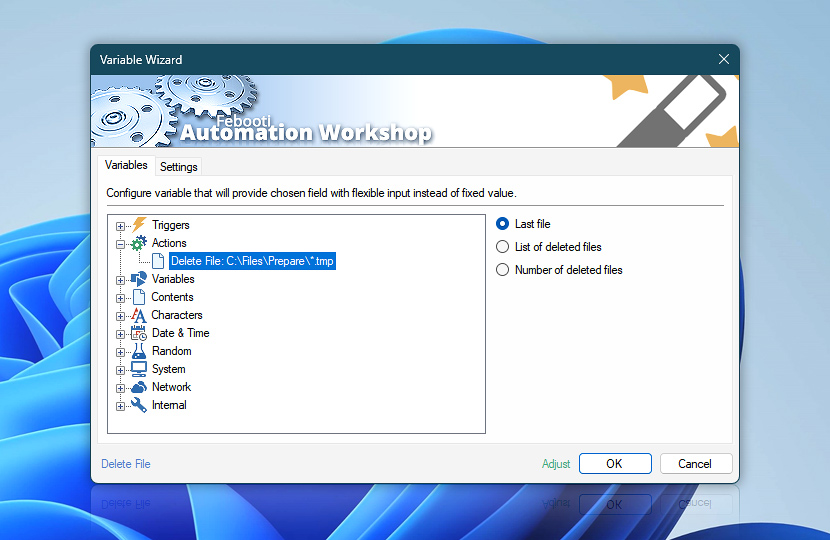After its completion the Delete File Action retains some of its operational data such as the full path and filenames of deleted files as well as the number of deleted files and completion status of the file deletion procedure.
These dynamic data on file deletion can be retrieved by the means of Variable Wizard and used for automatic ad-hoc configuration of the next Actions, thus streamlining automatic file deletion into the wider context of the Task.
| Variable | Details |
|---|---|
| Last file | The full path and name of the last file removed during file deletion process.
Examples:
|
| List of deleted files | The list of files removed during file deletion.
Examples:
|
| Number of deleted files | The total number of files that were deleted.
Examples:
|
| Completion status | Retrieve Action execution status with a possible value—Successful or Failed. Or Empty, if Action has not been executed yet. |
| Adjust* | Streamline creation of Task workflows even further—instantly make quick variable adjustments such as in-place text replacement (all, first, or last), ensuring (starts, ends, or does not), trimming (whitespaces, quotes, etc.), or changing capitalization. Chain multiple adjustments. Optionally, set a different display name. |
Automatic list processing…
The Delete File variables returned as lists (even multi-level) can be automatically processed in further Actions. Use the For Each Action to parse a given text string (any list variable) and sequentially retrieve its elements one by one · see list processing examples. Or, use the Split Text and Lookup Text Actions to access list elements by their indices.
We are here to help…
If you have any questions, please do not hesitate to contact our support team.

